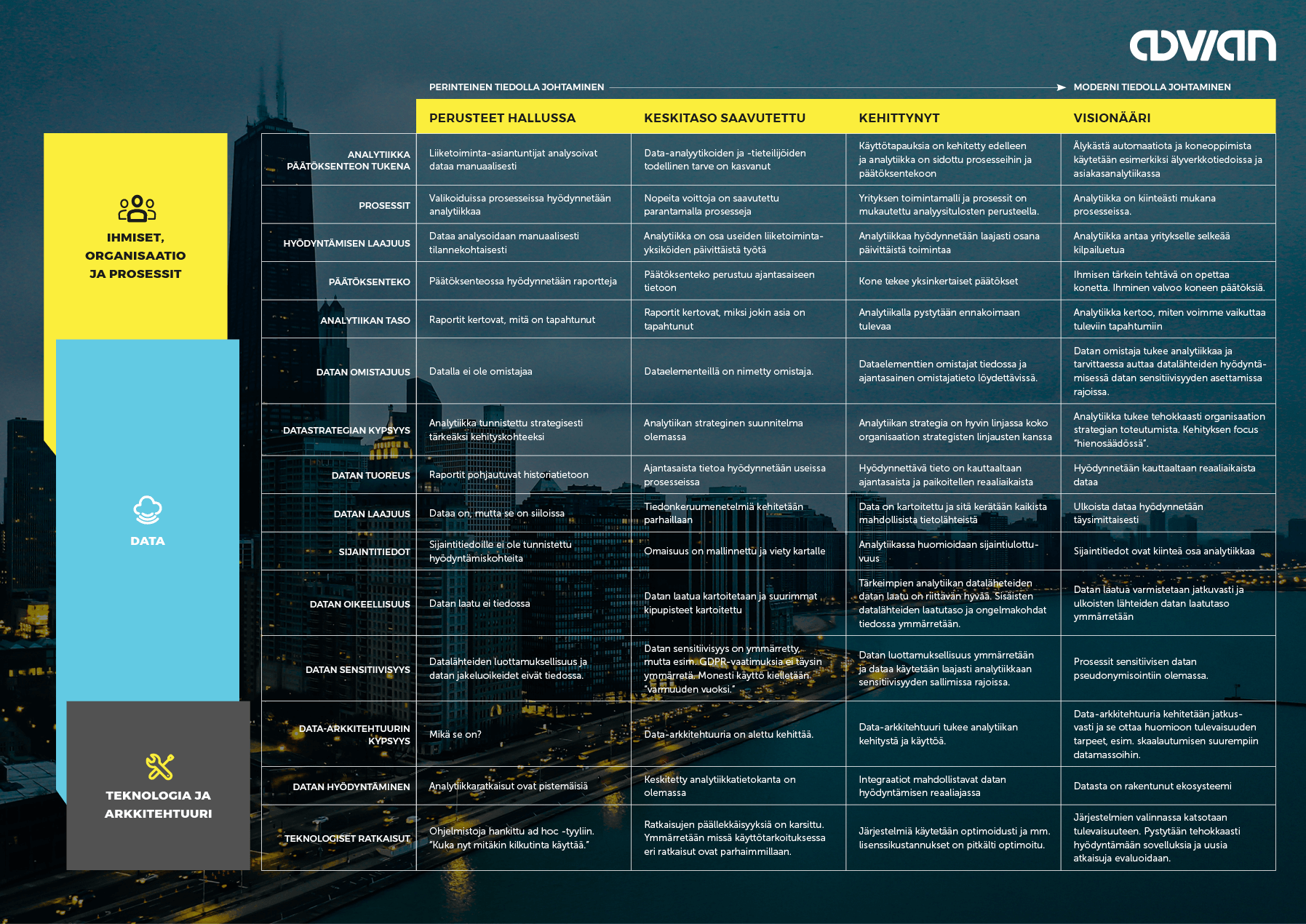In any professional’s life, there are some recurring and dreaded questions you must answer: What are your career goals? Could you squeeze this into your schedule? Are you trying to share your screen?
But there’s one single big question that I still get asked by the most surprising parties and at the most unexpected moments. Let’s see… It’s often among the first five questions when meeting someone new. I’ve experienced several social gatherings where I've had my near and dear (and at least once my own partner) ask me to ”explain it once more”. And now, even my employer asked me to share my experience.
So here it goes, once and for all: What is it I actually do for a living?
I answer questions
Data analysis is often described as "a process of inspecting, cleansing, transforming, and modelling data with the goal of discovering useful information, informing conclusions, and supporting decision making". If so, my job can best be defined as applying some tools and/or skills to data and extract some wisdom from it. This can for instance mean:
- Investigating how and by which factors urban air quality varies in time and space
- Measuring land surface temperatures to find leaks in heating pipelines
- Sifting through and documenting the ways critical data moves within large organizations
All clean and simple, but this is where specialization comes in. As the amount of available data keeps flooding the world, the task of selecting what to do with which data sources gets harder. This has led influencers in the data scene to declare that it's time to specialize or die.
Meanwhile, at Advian, we have a certain focus on location intelligence and remote sensing data and the specific toolboxes that come with those. We also enhance this offering with robust knowledge in machine learning algorithms and data management skills among other things. Personally, I would still like to draw some attention to the soft skills that I find just as important when making myself a useful member of any data team.
I present information
As you've probably figured, I'm not the most technical guy in the team. I'm not the best at engineering efficient data pipelines and I might not master every detail of the deep math needed to perform the latest data science wizardry. But the analyst job is just as much management of big pictures and using a range of interpersonal skills. Of these, I’d like to focus on the most important one: communication.
A key part of the analysis step of any data project is of course how you enable the end users of your findings to act upon them. Let’s call that data communication. It responds to the fact that the results you produce will never be useful unless you get your message across, whatever the audience.
Some of the skills this topic involves are:
- Expert translation
Communicating clearly with and between different stakeholders (often exemplified as IT engineers on one side and marketing directors on the other).
- Visualization and presentation skills
How do you present your work and what is the most efficient way to answer the question at hand in relation to your audience? Should you rely on plain text or spoken word? Would database tables do the job? Or is it best, as it often is, to use visual tools such as graphs, flowcharts or maps? And if so, how many are necessary, and of what kind?
Answering the "so what?". This involves going beyond what your findings, maps or charts show and dive deeper into what they mean. It could also include finding more data and merging it to your results to clarify your message.
- Decision facilitation
Stretching into last mile analytics, this is where you ensure that the answers you’ve generated lead to something valuable. It might include repeating your presentations, answering follow-up questions and offering your data-driven view to the issue at hand. An important step here is to not only answer the initial question but also support stakeholders in formulating new questions to answer.
- Listening
Always relevant and seemingly self-evident. Still, carefully taking note of your target audience’s questions and feedback will help you in formulating and clarifying your message for the best possible results. Listening is also a skill that will help you formulate good questions to answer in the first place.
With all that being said, I conclude that as the technical skills you master are necessary in performing your tasks, having and using a substantial amount of the soft skills exemplified above is what really makes your (or your team’s) work useful. This is what essentially transforms your answers into actions. Therefore, I believe that being a generalist can still be of great value and, for now, refuse to either specialize or die.
Disclaimer: In many ways, this is an anecdotal post depicting a very specific experience of a single data analyst. Different employers will have different definitions and expectations for identical titles. More importantly, I've experienced that the different Data Analyst roles I've had have all had a considerable amount of freedom regarding where, when and how to work. So, in the end, it could be pretty much what ever you want.

Interested in a career at Advian?
Perfect! Check out our career page and get to know us 👇
Topics: Advanced Analytics, People, Workplace, Career













